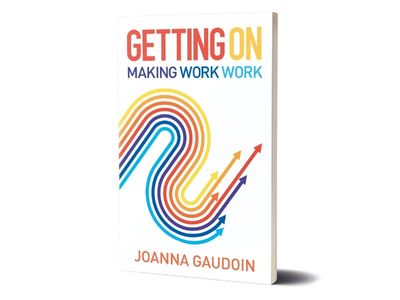 We’re all different. That leads to differences with those in our professional life – with some more than others.
We’re all different. That leads to differences with those in our professional life – with some more than others.
While some of these challenges may be occasional, others may be chronic and the ability to navigate them is important. Therefore, being able to manage conflict well is important as avoiding it long-term is not a good option.
There are some disagreements that can be raked over. However, ignoring problematic relationships never leads to an improvement. These relationships can have a negative impact on your day-to-day work life and your career prospects. You need to address them and do what you can to turn them around.
When to work on negative professional relationships
There are two key workplace types of relationship where it’s a good idea to work on improving how you engage with someone:
- ‘Close’ colleagues – if you have frequent challenges with someone you have to work closely with, then not improving the situation can be exhausting. You can’t avoid them and you need to find a more positive way to work with one another day-to-day. This person may be a peer or more junior or senior.
- Your boss – this person could fall into the previous category but not always, especially if you are in a matrix organisation. Even if you don’t work with them closely, your boss has an important role to play in your potential career progression and the direction your career goes. Ideally you want to have a supportive relationship where he/she speaks highly of you to others.
How to start turning these relationships around
While I work with my clients to understand the specifics of their difficult work relationships and help them develop lifelong professional skills they can use for that and other situations. There are some deceptively simple yet powerful approaches for navigating difficult relationships. These can be applied to most situations to get you started.
- Put yourself in the other person’s shoes
When we are assessing someone’s behaviour we’re seeing them in the light of how we behave and what we know, believe or assume. The key is to think about what could have made them behave in that way and look at it from their position of knowledge, beliefs and assumptions.
A key question here is: why might it make sense to them?
This will help you understand them better and hopefully relate better to them too.
- Listen
So few people really listen to others. It’s essential to hear what people are saying and what they are not -which can be just as important!
Also, give people space to talk, especially if they are an introvert and you’re not. People who feel hurried or crowded out will not reveal important things to you.
When you truly listen, you will better understand the other person’s attitudes, motivations and beliefs, which will help you understand why they are acting the way they are. You can then act accordingly.
- Their working style
Take notice of others’ working style. Consider when you approach or interrupt someone. Are they a morning person? If so, 8am is might be the best time to have a difficult conversation rather than 3pm when their energy and concentration is waning. Consider how you might need to adapt to each key person you work with.
To request my free webinar Getting On With Others, click here.
Take action – four things to do now
Ignoring challenges and making no changes rarely helps relationships improve. Most of us are conflict averse but in the long run that often leads to greater problems. Time spent working on your difficult professional work relationships is a worthwhile investment.
To get started on navigating and turning around difficult work relationships:
- Consider your most important work relationships.
- Focus on the two which are most challenging.
- Summarise the top 3 challenges in each relationship, considering them in the light of what has actually happened.
- Consider how you could have behaved differently in those situations, how that could have changed the outcome and what you might do differently in your interactions from now on (caution – don’t set yourself too many things to try at once!).
Good luck as you work on navigating these difficult relationships and hone this essential professional skill.
If, once you’ve done all of the above and are still struggling or, you have a specific challenge you’d like to talk through, then get in touch. The best thing to do is to contact me to book a complimentary, no obligation 30 minute Career Booster call.
 About the author
About the author
Joanna Gaudoin, Inside Out Image (https://insideoutimage.co.uk/) specialises in helping ambitious professionals and their organisations improve performance and achieve their goals.
She does this by helping them master and strategically use the business skills of Personal Impact and Relationship Management. These skills are required for professional success.
Before establishing Inside Out Image, Joanna worked in marketing and consultancy in large corporates. She understands the business world and its challenges. She now helps organisations and individuals understand how to succeed in it.
If you are a job seeker or someone looking to boost their career, then WeAreTheCity has thousands of free career-related articles. From interview tips, CV advice to training and working from home, you can find all our career advice articles here.








